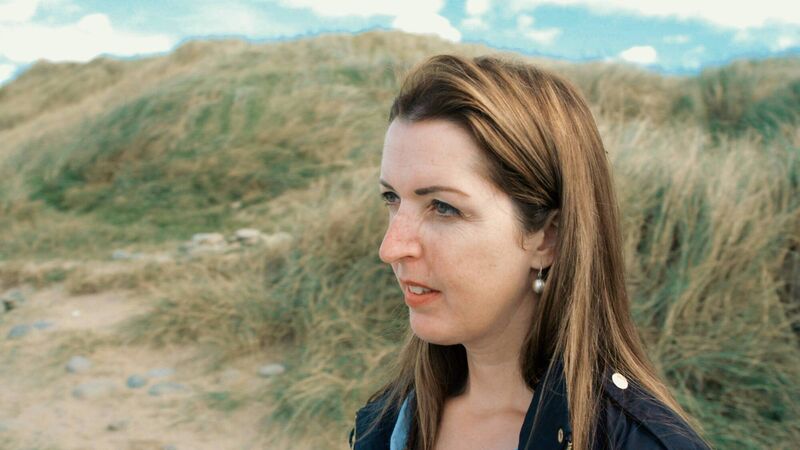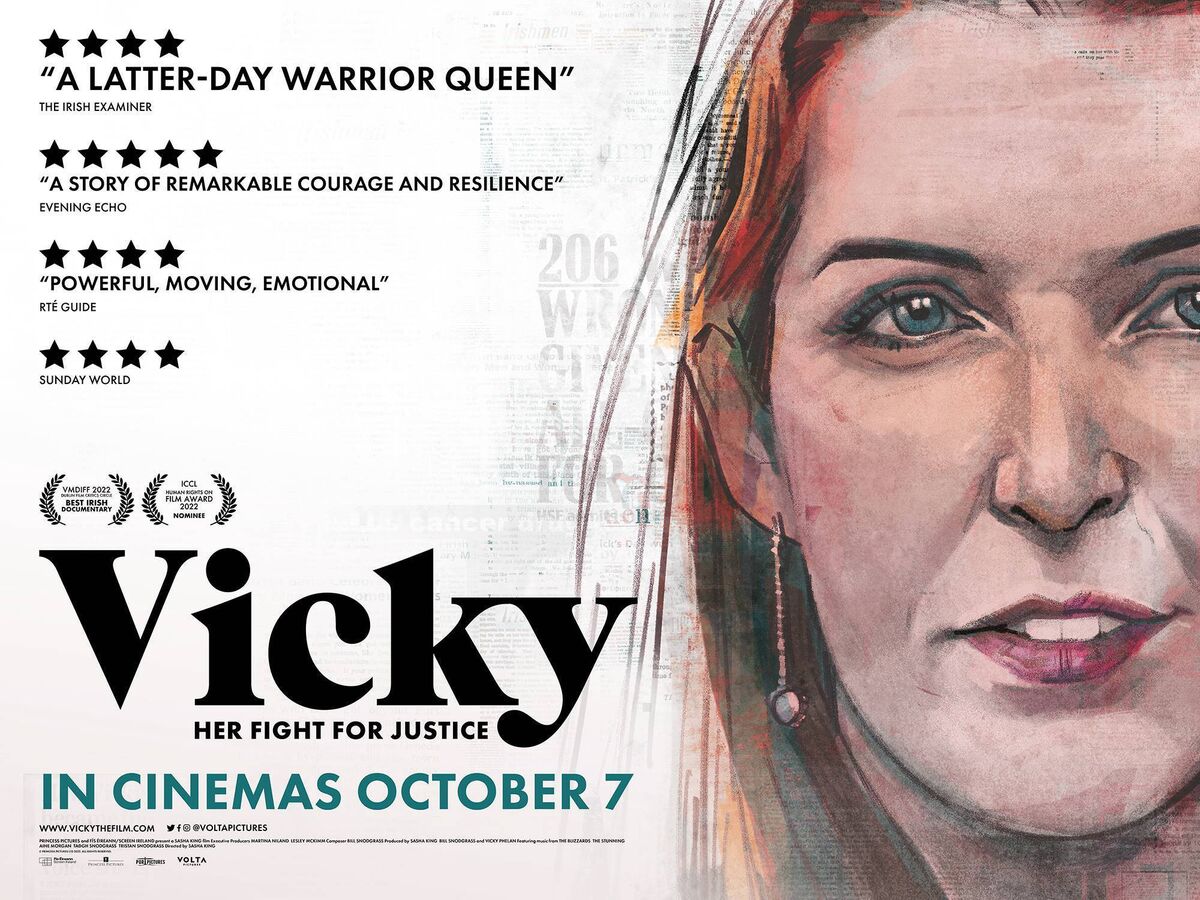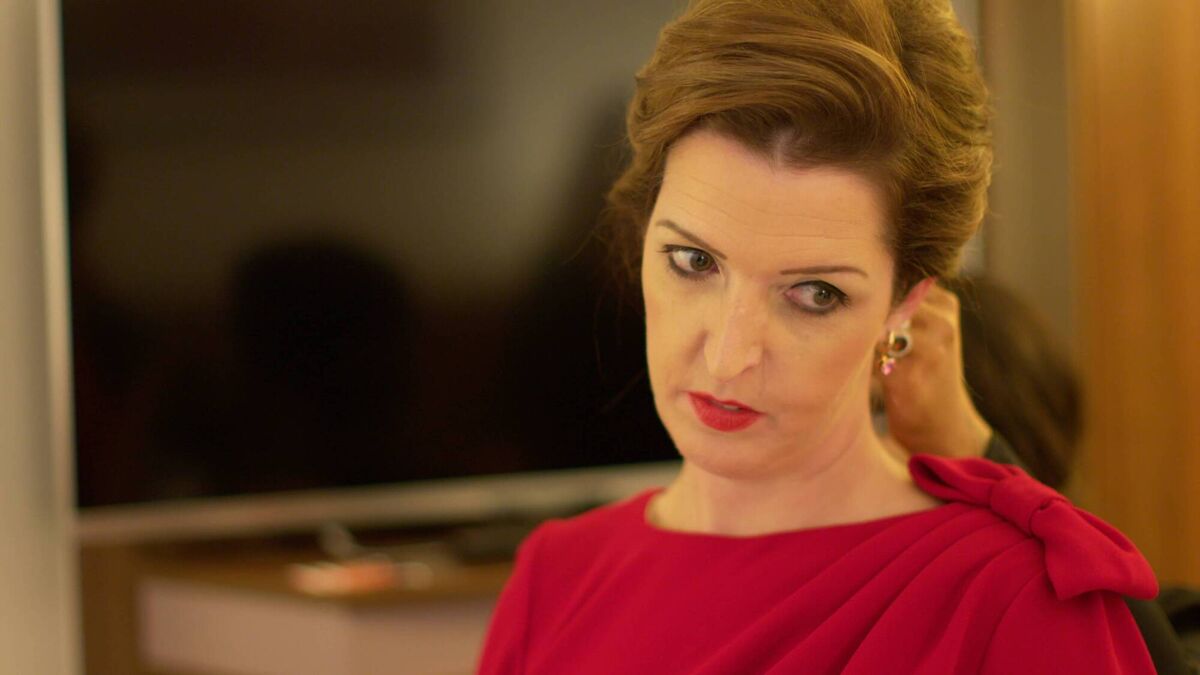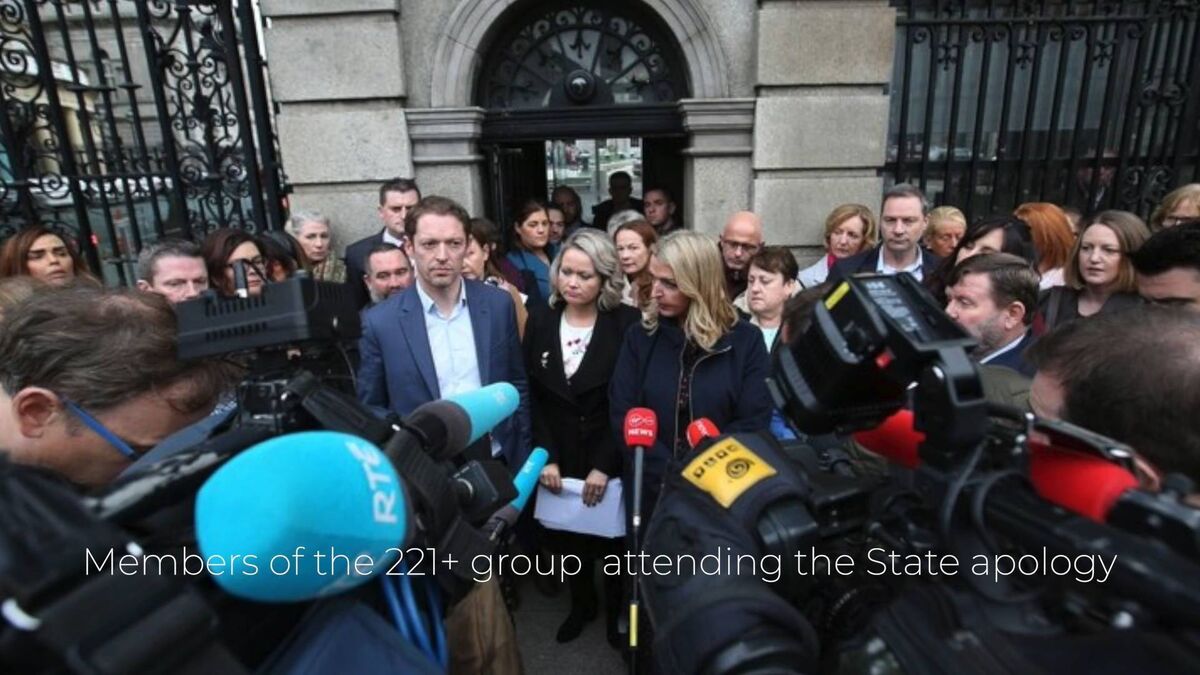Vicky Phelan: 'Mná na hÉireann, this fight was for you...'

Vicky Phelan in the new documentary 'Vicky' out this week.
IN 2018, Kilkenny-born Vicky Phelan stood outside the High Court and gave a speech that exposed the outrageous CervicalCheck scandal.
In 2011, her smear test showed no abnormalities. In a 2014 audit, the results were identified as incorrect; Vicky had cervical cancer. Not only that, but a decision was made following the audit not to inform Vicky. She found out by accident as she assessed her medical records.
At that moment, outside the High Court in 2018, Vicky proved not simply to be a woman appallingly let down by the state, but a woman who was putting herself ahead of all the women of Ireland. By not staying quiet, she brought herself and the 220 other women affected by the scandal to the forefront of the nation’s attention and ensured a safer future for the women who followed behind them.
At that moment, Vicky became a hero.

A STORY BROUGHT TO THE BIG SCREEN
A new documentary, simply titled Vicky, opens this week. Directed by Sasha King, it takes us through some of Vicky’s most painful moments as well as some of her happiest as she juggles parenthood with illness, and pain, and her continuing crusade for justice.
When she spoke outside the court, she instantly became one of the most well-known people in the country. Like most of us, King watched the news that day.
“I saw Vicky on the news standing outside of the High Court. I was floored by what she was telling all of us. I couldn’t believe that this had happened to her. I contacted her, and we arranged to meet. We hit it off immediately.
"I’m so fond of her; she’s an incredible person to be around, a fun and a warm character.”
FILM-MAKER AND FRIEND
When King pitched Vicky the idea of a documentary, she said yes straight away. The pair became collaborators more than subject and filmmaker.
“Vicky is the best collaborator I’ve ever worked with; we were a team. When she puts her mind to something, that’s it, she is all in, and that’s the beautiful thing about her. She was super busy at that time with campaigning, and there were times when she was unwell, but she carved out time for me to film her.
"It was a real honour to film her going through this extraordinary time in her life.”

RAW EMOTION
Vicky recounts what she went through when she got her diagnosis, the pain of telling her parents and her family, and getting the news that her cancer had become terminal. We hear her talk about the original scan mistakes and the awful moment she learned that the HSE knew about the error and chose not to inform the women involved. Each moment is raw and emotional, and King says Vicky understands the importance of telling a story, of reliving those moments.
“It was difficult, we were both crying at junctions, but we have a good relationship. We like each other, trust each other, we took breaks when we needed them. Vicky knew how important it was to tell the full story and I knew what I wanted to achieve with the documentary; we wanted this story to be recorded in history, and Vicky is so generous to share this story.
“She’s so honest. I think that’s why we’re all drawn to her; when she speaks, she calls our attention. When Vicky says something, we listen.”
Vicky’s solicitor Cian O’Carroll takes part in the documentary, and, at one point, he gets emotional, something we don’t expect solicitors to do. It is a powerful moment that King says reflects how we all feel when we hear about the 221 women involved.
“I wondered if Cian would ask me to take that scene out, but he didn’t. I was thankful for that because it is important to show that we are all affected by this; whether we know someone or hear their stories, what happened is not right, and it is OK to cry about it. You cannot make a film or watch a film about such a harrowing story without being affected by it.”

A SHAMEFUL HISTORY
King points out that, as a country, we have an appalling history of decades of treating women poorly, particularly concerning health.
“We’ve progressed in so many other ways, you would think that we would go out of our way to make sure things like that never happen again and overcompensate for mistreatment in the past, but this happened so recently.
“If Vicky had chosen to sign a non-disclosure agreement that she was offered, we wouldn’t know what happened.”
WORKING FOR OTHERS
Vicky didn’t just refuse to stay silent; she campaigned for medication access for herself and all women with similar diagnoses. She campaigns for better services for women and their families living under the shadow of cervical cancer.
Sharing Vicky’s story is one way King hopes to prevent similar scandals and continue the campaign work that Vicky has become synonymous with.
“By documenting Vicky’s story, the choices and decisions she made, I hope the film inspires people to take action and to learn.
"Even though she’s going through such a terrible time, Vicky is a hugely inspiring figure. She wants Irish men and women to learn from what she went through, to take up the baton.”
OTHER’S STORIES
Carrigaline-based Stephen Teap, whose wife Irene died of cervical cancer, also features in the film, and King says he is generous with his time and sharing his family’s story.
“Stephen understands the importance of documenting everything that happened. He brings another side of the story that’s so vitally important. He wants people to know what happened to Irene, she was just 35 when she died, and their children were very young. Stephen wants people to know what they have lost.”
Peter Kearns reached out to Vicky following the death of his wife, to discuss Pembrolizumab, a groundbreaking new drug. He was glad to share his experience with King.
“Peter had just lost his wife Emma within weeks of contacting Vicky, and he extended a hand of friendship. Peter’s mother-in-law heard Vicky on the radio and said ‘you need to reach out to this lady. She’s going through what Emma had gone through’. Peter had done a lot of research into Pembrolizumab, and he was willing to share this information, even though he was grieving.
“I was floored when I heard that someone going through so much pain would be willing to help another person.”
DOCUMENTARY WILL MOVE PEOPLE
King says there are many inspiring things about the documentary.
“Even though we’re depicting a really terrible thing that happened in Ireland to these women and families, there are people who are reaching out to each other and helping each other.”
As the film comes to an end, there is a song written especially for Vicky.
“My producing partner Bill Snodgrass wrote the title track This Fight, which is the anthem of sorts for Vicky; our sons, Tadgh and Tristan Snodgrass, sing it. The song reminds us of what Vicky has done for us and reminds us to fight for justice, make sure you understand what you’re being told medically, and challenge it if it doesn’t sound right.”
The film ends on a reflective note and a message from Vicky: Mná na hÉireann: this fight was for you.
Vicky is in cinemas from this Friday, October 7. It was screened at the IndieCork festival last weekend.







 App?
App?


